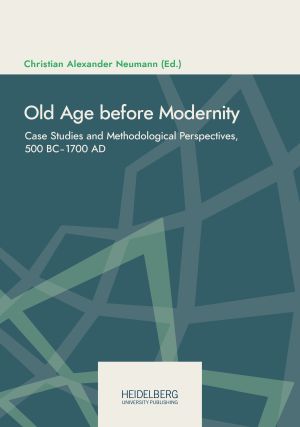How to Cite
License (Chapter)

This work is licensed under a Creative Commons Attribution-NonCommercial-NoDerivatives 4.0 International License.
Identifiers (Book)
Published
Old Age and Rulership. King James I of Aragon and Venetian Doge Marin(o) Falier(o)
Abstract Although kingship represents a classic topic of historical research, systematic studies are nevertheless rare. So far, certain aspects related to old age have been dealt with in the context of several studies that link political history with the history of culture and medicine. Due to the systemic differences between various kinds of political regimes, the analysis of the period of old age starts from rather diverse scenarios. While kings often ascended the throne by succession in their youth or middle age and grew old while exercising their office, the late medieval Venetian doges were usually not elected until they were on average about 65 years old. In this paper, two case studies of different political systems will be analysed in a comparative view based primarily on narrative, but also on administrative sources: a hereditary monarchy, namely that of King James I of Aragon (1208–1276, r. 1213–1276, who died at the age of 68); and a republic using electoral procedures as in the case of the Venetian Doge Marin(o) Falier(o) (1280 or 1285–1355, r. 1354–1355, who died at the age of 70 or 75). The study highlights aspects of old age that are common to both case studies such as for example health and illness, compensation, sexuality, and the preparation for death, as well as aspects that are unique to each case, such as warriorship and the perceptions of old age in a situation of discord and antagonism.






